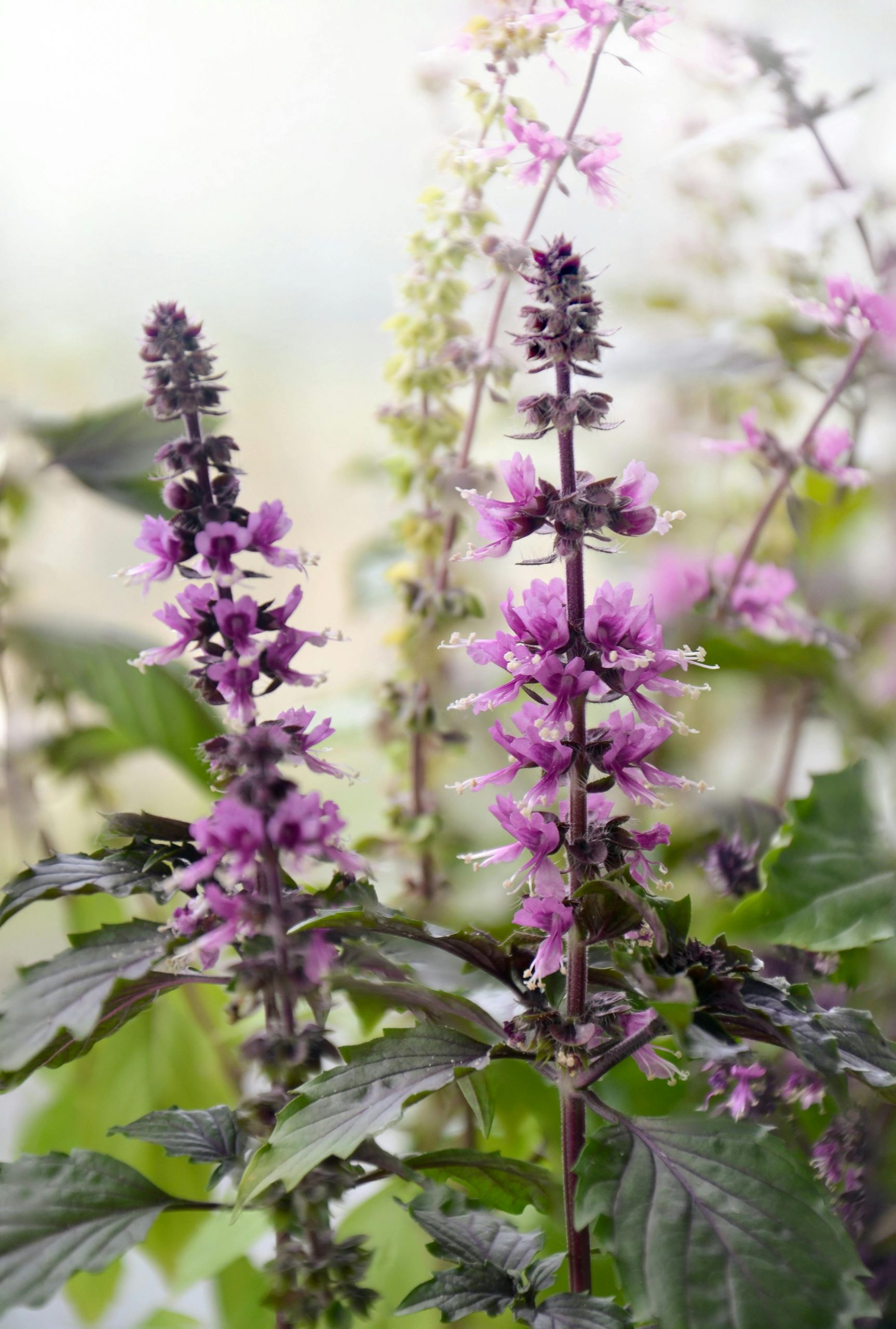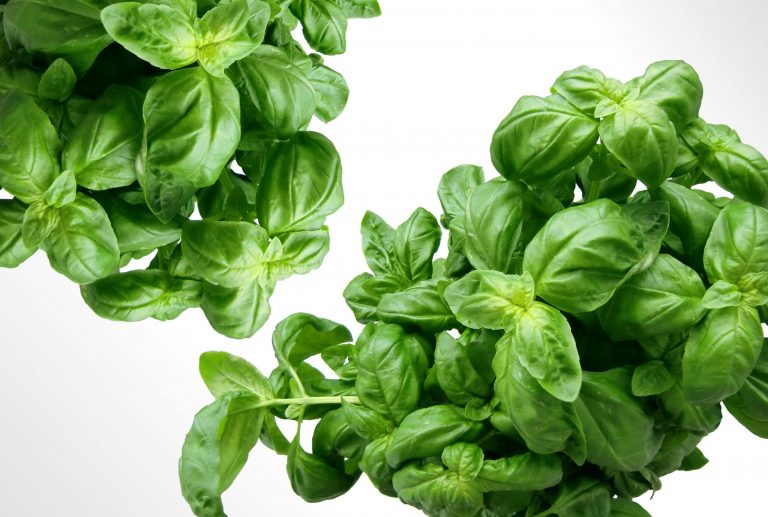Herbs are more than just a finishing touch on your plate; they’re packed with history, flavour, and powerful health benefits. Basil, in particular, has been treasured from ancient healing practices to modern medicine. From boosting immunity to easing stress, this versatile herb offers more than meets the eye. Here’s a closer look at its nutritional profile, top health benefits, and easy ways to add it to your diet.
Magical basil
Ocimum basilicum, or basil, is an herb widely used in Southeast Asian and Italian cooking, and comes in many varieties. Common types include:
- Sweet basil: The most commonly used and grown variety has trademark round, curved, grass-green leaves with a sweet flavour.
- Genovese basil: This is sweet basil’s cousin, but with larger, darker green leaves and a stronger flavour.
- Thai sweet basil: These are flatter and pointier with a distinct black liquorice flavour that can withstand higher temperatures than sweet basil can.
- Purple basil: This variety has striking reddish-purple leaves with a bold flavour–like herby cloves.
- Holy basil (Tulsi): This variety is commonly used for worship in Hinduism. Specifically in Ayurvedic medicine, this variety is considered to be one of the most important medicinal herbs, with a more bitter flavour when eaten raw.
Many varieties are available at local supermarkets and fruit and vegetable grocers, are frozen or dried, or can be found in nurseries. If you’re after a more medicinal use, you will be able to find it as an essential oil, extract or powder at pharmacies or local health stores.

Benefits of basil
Basil is really healthy for you, in more ways than one. From strengthening bones and improving immunity to aiding digestion and anxiety, the health benefits of basil seem to be endless.
Basil leaves are packed with essential nutrients and other minerals, including:
- Vitamin K
- Calcium
- Iron
- Manganese
- Magnesium
- Potassium
- Antioxidants
- Antibacterial properties
- Anti-inflammatory properties
- Analgesics (help with pain relief)
Many studies have shown five main health benefits of basil.
1. Cell damage
Basil is packed with antioxidants that help protect your body’s cells from free radicals (as a response to stress and inflammation). If left unchecked, oxidative stress can lead to serious conditions such as cancer, cardiovascular disease, cataracts, and inflammatory diseases like arthritis. Consuming basil regularly will load your body with antioxidants that can lower stress and inflammation.
Furthermore, the antioxidants and anti-bacterial properties help boost immunity, and a poultice (made by grinding the leaves into a paste) can help heal wounds.
2. Cancer prevention
Many studies have identified sweet basil essential oil as a potential for warding off certain cancers. One study found that sweet basil prevented the growth of human colon cancer cells. Another study found anticancer properties in six different types of basil leaves that prevented the cancer cells’ ability to grow and divide. But more extensive research needs to be conducted to confirm these promising results.
3. Blood pressure and cholesterol
Basil has been used to treat cardiovascular disease by Traditional Chinese Medicine practitioners for centuries. Holy basil, in particular, contains eugenol, an oil that may help lower blood pressure by relaxing your blood vessels. Additionally, basil has been found to lower cholesterol levels.
4. Blood sugar levels
Scientists have observed that basil extract significantly reduced blood sugar levels in lab models of diabetes. More extensive studies need to be conducted, but many early-stage studies have found that basil has the potential to help manage blood sugar levels and Type 2 diabetes.
5. Mental health
Daily basil consumption has been found to influence many aspects of mental health, from enhancing cognitive functioning and improving mood to reducing stress and anxiety. Basil’s essential oils have been found potentially to decrease depression, stress and age-related memory loss.

How to incorporate basil into your daily diet
First: if you want to consume basil to improve a specific medical condition, or you take chronic medication, it is advised that you first consult your doctor (GP or specialist). Some medications, like warfarin, don’t mix well with basil and may cause adverse effects.
Many dishes use basil, from Italian pesto to Thai stir fries and Vietnamese pho. However, you can also brew tea using the leaves, flowers or dried mix. Steep two to three teaspoons in a cup of hot water for five to six minutes (or make some iced tea).
If you want to reap the medicinal benefits more, look out for essential oils, powders and extracts to add to your daily regimen. These work well for supplementing your diet, for massages, aromatherapy, and even skin care.

